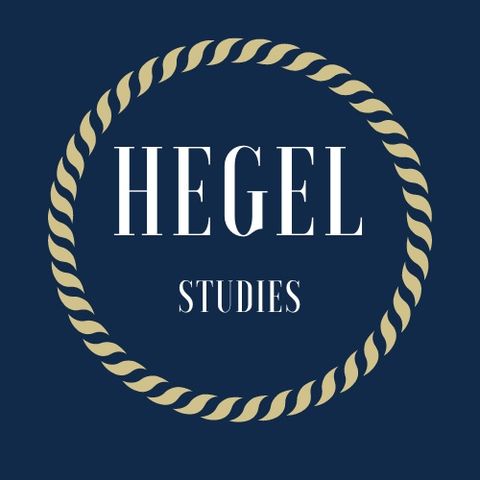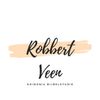Hegel's Treatment of Property - par. 488 - 492

Descarga y escucha en cualquier lugar
Descarga tus episodios favoritos y disfrútalos, ¡dondequiera que estés! Regístrate o inicia sesión ahora para acceder a la escucha sin conexión.
Descripción
A. Abstract Right (a) property Immediate freedom expresses itself in objects Par. 488 - The mind, as an individual with self-determined freedom, understands its abstract liberty through the possession of...
mostra más(a) property
Immediate freedom expresses itself in objects
Par. 488 - The mind, as an individual with self-determined freedom, understands its abstract liberty through the possession of external objects, which lack their own will and thus are subject to the mind's intelligence and volition.
The mind, an entity of self-determined freedom, perceives its liberty in an abstract form. This abstract liberty is understood through the possession of external objects, which inherently lack their own will. These objects become subject to the mind's intelligence and volition, serving as a canvas upon which the mind projects its freedom. This projection is not a mere assertion of control but a fundamental expression of the mind's immediate freedom.
Property, not possession expresses my personhood
Par. 489 - Through the act of possession, an object becomes 'mine', reflecting not just a practical claim but the infusion of my personal will into it, transforming possession into property that serves as a means for expressing my personality as an end.
Possession, in its initial form, is a practical claim over an object, signifying that it is 'mine.' However, this practical aspect transcends into a deeper infusion of personal will into the object. Through this process, possession evolves into property, which is not merely a means to an end but the end itself. Property becomes a tangible expression of one's personality, embodying the will and essence of the individual.
Personhood is still only abstract unity with itself
Par. 490 - Ownership unites a person with their abstract self through external objects, and this self-relationship is realized and affirmed through mutual recognition with others.
Ownership is more than a legal or economic construct; it is a unifying force that connects a person with their abstract self. Through the ownership of external objects, a person engages in a self-relationship that is both realized and affirmed through the mutual recognition with others. This recognition is not a passive acknowledgment but an active engagement that solidifies the person's existence within a community of individuals.
Independent persons recognize others in property
Par. 491 - Objects serve as the medium through which individuals, aware of their freedom and independence, express and recognize their will by taking possession or marking ownership.
Objects, thus, become the medium through which individuals express and recognize their will. Aware of their freedom and independence, persons use objects to manifest their will in the physical world. The act of taking possession or marking ownership is not a mere formality but a declaration of one's identity and autonomy.
Properties are bought and sold: cooperation between freedoms
Par. 492 - Property involves the discretionary act of imbuing an object with one's will, which can be freely placed or withdrawn, and it is through this personal will that ownership can be transferred to another by mutual agreement, forming a contract.
Property, as a concept, encompasses the discretionary act of placing one's will into an object. This act is arbitrary, allowing for the will to be freely placed or withdrawn. It is through this personal will that the essence of contract emerges. Ownership can be transferred to another by mutual agreement, forming a contract that represents a cooperation between freedoms.
TEST YOURSELVES
What does the mind use as a 'canvas' to project its freedom? A) Its own will B) External objects C) Abstract concepts D) Intelligence and volition
How does possession transform into property according to the text? A) By becoming a practical claim B) Through legal or economic constructs C) By infusing personal will into the object D) Through mutual recognition with others
What does ownership primarily serve as in expressing personality? A) A means to an end B) An end in itself C) A legal right D) A social construct
How is the self-relationship of a person realized and affirmed? A) Through the possession of external objects B) By engaging in economic activities C) Through passive acknowledgment D) By mutual recognition with others
What role do objects play in the expression and recognition of will? A) They are a mere formality B) They serve as a medium for expression and recognition C) They are arbitrary possessions D) They are used for economic transactions
What is the essence of contract in the context of property? A) The arbitrary act of placing one's will into an object B) The legal transfer of ownership C) The cooperation between freedoms through mutual agreement D) The economic value of the property
The correct answers are:
B) External objects C) By infusing personal will into the object B) An end in itself D) By mutual recognition with others B) They serve as a medium for expression and recognition C) The cooperation between freedoms through mutual agreement
Comentarios

Robbert Veen
hace 6 meses
Información
| Autor | Robbert Veen |
| Organización | Robbert Adrianus Veen |
| Página web | - |
| Etiquetas |
-
|
Copyright 2024 - Spreaker Inc. an iHeartMedia Company
